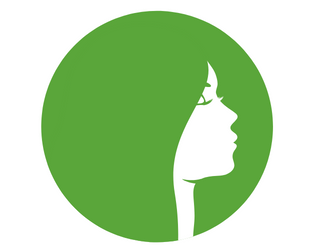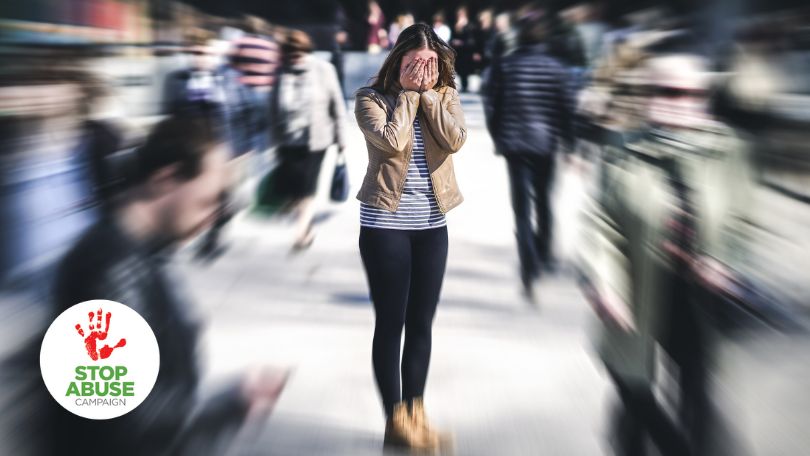Did you know that over 40 million adults and seven percent of children suffer anxiety? Almost an epidemic, it is one of the most common mental disorders that significantly affects the quality of people’s lives.
This May, the Mental Health Awareness month, we’re addressing anxiety symptoms, causes, and treatments, so that you can help yourself and those you care about if you’re struggling with anxiety. More importantly, you’ll understand why you may have developed anxiety, its specific type, and why it is not your fault.
What is anxiety? Symptoms and signs
Symptoms and signs of anxiety include both emotional and physical symptoms.
What does anxiety feel like?
Some of the emotional symptoms you may struggle with are:
- Feeling fear,
- Dread,
- Overwhelmed, and
- Uneasiness.
You may begin to question if you are crazy because sometimes there are no reasonable explanations for these emotions. It is difficult to address the negative state of mind, especially when your current stressors are part of your daily life and past traumas peek through from your Adverse Childhood Experiences.
Physical signs and symptoms people tend to experience are:
- Sweating,
- Restlessness,
- Feeling tense,
- Headaches,
- Tremors,
- Upset stomach, and
- Rapid heartbeat.
You may experience only some, not all, of these anxiety symptoms, but they still deplete your well-being by affecting both your physical and mental health.
Most people develop these symptoms before the age of 21, which is a meaningful indicator of their major cause, ACEs (Adverse Childhood Experiences) and childhood trauma.
What causes anxiety?
While some people are more prone to anxiety due to their genetic makeup, exposure to Adverse Childhood Experiences (ACEs), such as physical, emotional, or parental substance abuse, can make you more susceptible to anxiety.
Types of anxiety
Different types of anxiety disorders, such as generalized, social, and separation anxiety, have their own causes and symptoms that can hurt your mental and physical well-being via a specific set of symptoms. These can make it difficult for you to function in a particular context.
Understanding which one you may have helps identify the best treatment plan for you, dramatically improving your mental health.
Generalized Anxiety Disorder
Chronic Generalized Anxiety Disorder (GAD) derives from constant stress and worry from everyday life, making it difficult to focus on tasks. You may be unable to think clearly and may leave work unfinished.
Social Anxiety Disorder
Social Anxiety Disorder often manifests as shyness, fear of human interactions, and hesitancy to participate in conversations. You start worrying about public humiliation from saying or doing something reckless or stupid. This adds to feelings of isolation and loneliness. Forced interactions can make your symptoms worse and can lead to panic attacks.
Separation Anxiety Disorder
Separation Anxiety Disorder (SAD) goes past GAD and is one of the most common childhood anxiety disorders. Separation from an attachment figure —a parent, guardian, or sibling— can lead to exaggerated and excessive worry, concern, and dread. Known as a “gateway anxiety,” separation anxiety results in detrimental mental and physical states. Left undiagnosed, children with SAD have poor academic performance and exhibit signs of social anxiety.
Anxiety and childhood trauma
SAD and other anxiety disorders are commonly found in survivors of one or more ACEs. Suppose you have experienced childhood parental loss (by divorce, separation, or death), extended parental absences (incarceration), parental mental illnesses, sexual abuse, parental substance abuse, emotional and physical neglect, and lack of a safe environment overall. In that case, you are most likely to experience SAD or other anxiety disorders.
Anxiety treatment and medication
Luckily, there is help and hope. When identifying your potential disorder, please seek out your healthcare provider, who will then ask about your symptoms and medical history. In some families, depression and anxiety can be hereditary. A physical exam and lab tests may double-check that other health problems outside of your mental health are not the leading cause of your symptoms.
Anxiety medication as a treatment option
After establishing your diagnosis, your practitioner may recommend treatment plans that include anxiety medication. It’s vital you consult your healthcare provider before taking any medications.
Does therapy help with anxiety?
Most definitely. When searching for a therapist, contact your healthcare provider to find one specializing in anxiety or the root of stressors such as ACEs and childhood trauma. Having a therapist that understands the best way to push and comfort you outside of habitually thinking of those destructive thoughts and behaviors can be beneficial.
Keep in mind that therapy does not show results immediately. Similar to participating in daily self-care routines, therapy requires a commitment to being open and self-aware of your problems. This takes time because learning and utilizing the emotional tools to take a step away from your anxiety takes practice.
What therapy is best for anxiety?
Cognitive Behavioral Therapy (CBT) is a standard treatment for anxiety. CBT is a type of psychotherapy that teaches you an alternative way to think and behave, changing how you feel about stressors that cause your fear and anxiety. A type of CBT is exposure therapy which focuses on confronting your fears instead of avoiding them. For example, talking and addressing your fear and anxiety around social interactions in small increments to make you feel more confident and comfortable in social situations.
How to calm anxiety yourself?
Exercising, relaxing activities such as meditation, and confiding in someone like a therapist can be beneficial.
However, there has to be a commitment to a lot of TLC—tender, love, and care—for yourself to start feeling the effects. This means scheduling at least an hour in the day to read a book, take an extra 30 minutes in the bath, go for a run, listen to your favorite music, book an extra session with your therapist, or follow up with a forgotten hobby.
Overcoming anxiety and childhood trauma
It’s important to realize that overcoming anxiety disorders and mental health problems is a lifelong commitment. While there are no quick cures, you can work every day to take time to remind yourself how to maintain and control those feelings of fear, excessive worry, uneasiness, or dread.
Make sure you take time to learn and understand your ACEs. The first step is to take your ACE test to discover your ACE score. Just being aware of your ACEs and how they make you react in the present time is incredibly helpful.
Additional resources for help
Mental Health America (MHA) is the nation’s leading community-based nonprofit dedicated to addressing the needs of those living with mental illness and promoting the overall mental health of all.
Crisis Text Line – Text HOME to 741741
National Suicide Prevention Lifeline – For TTY Users: Use your preferred relay service or dial 711 then 1-800-273-8255
Substance Abuse and Mental Health Services Administration National Helpline – (800) 662-4357
Learn more about ACEs associated with mental health issues here. Learn how you can help break the cycle of trauma by subscribing to our newsletter and supporting our work. Read about the ten categories of ACEs by following our blog. Do you know your ACE score? Take the ACE test here.
Do you know your score?
Discover your ACE score and unlock a new understanding of your life. Take the test and gain insights into how your early experiences shape your well-being. Don't let your past define you – empower yourself with knowledge.

Letisha Dass
Reporter
